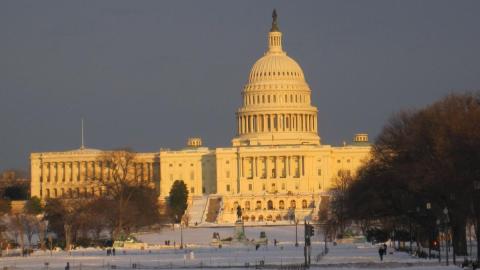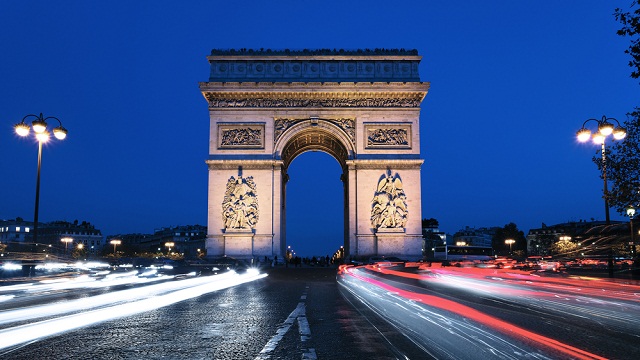Why Is America’s Most Progressive Voting Block Often Overlooked?

This article was originally published on AlterNet.
The renowned physicist Max Planck once said, “A new scientific truth does not triumph by convincing its opponents and making them see the light, but rather because its opponents eventually die, and a new generation grows up that is familiar with it.” And this isn’t just true of science: the same principle holds true in the political arena. Most progressive advances don’t come about because vast numbers of people are persuaded to drop their prejudices, but because younger generations to whom new ideas seem normal and familiar eventually replace the old guard. To name the obvious example, this is what’s happening right now with marriage equality, as young people who are overwhelmingly comfortable with GLBT rights grow up and replenish the electorate.
But there’s one political issue that seems to be an exception to the trend of progress over time, and that issue is abortion. A recent poll found anti-choice views in the slim majority for the first time in decades. What’s worse, the anti-choice side is far more aggressive and well-funded, partly because they’re not burdened by providing actual medical care and can spend all their donations on propaganda, and has been hard at work creating hurdles for women’s rights throughout the country. However, there is one ray of light in this gloomy picture: one rising demographic that’s strongly supportive of a woman’s right to choose. Who is it? Atheists:
Americans with no religious attachment (self-identified atheists, agnostics, and those with simply no religious preference) identify as pro-choice by a 49-percentage-point margin over pro-life, 68% to 19%. This represents the strongest propensity toward the pro-choice position of any major U.S. demographic (as distinct from political) subgroup.
In America, atheists, agnostics and the nonreligious are pro-choice by a 49-percentage-point margin, an overwhelming majority. To put this in perspective, the nonreligious are substantially more pro-choice than women; they’re even more pro-choice than registered Democrats (who, by contrast, support reproductive rights by a mere 30-point margin).
This is a strong argument for the fundamentally religious and faith-based nature of anti-abortion arguments. As people lose their religious beliefs, their pro-life views drop away as well. If anti-abortion views were based on evidence and reason, then we’d have every right to expect that the atheist community would be more evenly divided, and that there wouldn’t be such a chasm between the religious and the nonreligious on the issue of choice. This is the same unobjectionable logic we use to conclude that rejection of evolution is driven mostly by religious belief.
But it’s not just reproductive rights where we see this progressive pattern. A Pew survey from 2009 asked about the permissibility of torturing people suspected of terrorism. The religiously unaffiliated and those who never attend church were more likely than Catholics, evangelicals, or mainline Protestants to say that torture can rarely or never be justified. The nonreligious were also more likely than Protestants, Catholics or Mormons to oppose the war in Iraq. And of course, the nonreligious support marriage equality by a stratospheric 76% margin.
All these data points show that while there’s no logically necessary connection between atheism and progressive political views, in practice it usually does work out that way. The rise of atheism and the rapid growth of the secular community, especially among the Millennial generation, should therefore be developments that all progressives should welcome. As PZ Myers put it, atheists have the potential to be a progressive air force, shaking up the political landscape and changing the nature of culture-war issues that have long been mired in deadlock.
And these reinforcements can’t come soon enough. The religious left, whom you might expect to be the natural counterbalancing force to the religious right in the American political arena, has instead been repeatedly outmaneuvered and outgunned by Christian conservatives over the last several decades. You might chalk this up to divine providence, but as David Niose writes in his new book Nonbeliever Nation, it was the liberal religious leaders themselves who unwittingly laid the groundwork for this string of defeats.
Prominent early 20th-century liberal humanists, such as John Dewey, rejected traditional creedal religion but freely used religious language like “God” and “the divine” in nonstandard ways. (Dewey’s definition of “God” was “the active relation between ideal and actual”). This was meant to make their progressive message sound familiar and unthreatening to ordinary churchgoers, but as Niose writes, it proved to be a disaster: “The use of religious language by Dewey and his contemporaries actually served to validate the most conservative of religious positions… he unwittingly created a public atmosphere of near unanimity on the importance of theism,” which empowered religious conservatives and marginalized the secular viewpoint.
Despite their shared belief in God, the religious left actually has less in common with the religious right than it does with progressive, nonreligious Americans. But by choosing to play up the importance of religion and religious language, the liberal churches undermined their natural allies outside the pews, while strengthening those who insisted most loudly and most vehemently that society should be run according to the dictates of the Bible. This strategic blunder has guaranteed the relative isolation and diminished influence of the Christian left in the face of a rising tide of religious conservatism.
In 2004, for example, major TV networks flatly rejected a pro-gay commercial by the left-leaning United Church of Christ, which said little more than, “Jesus didn’t turn people away. Neither do we.” The networks explained unhelpfully that “Because… the Executive Branch has recently proposed a Constitutional amendment to define marriage as a union between a man and a woman, this spot is unacceptable for broadcast”. It’s difficult to imagine any major network so bluntly refusing a right-wing religious group without facing a far worse backlash.
Even Barack Obama, justly credited as an eloquent speaker and orator, confesses in The Audacity of Hope that he found himself flustered and off-balance when trying to defend his liberal religious beliefs against a scripture-quoting right-wing fundamentalist:
“Take my Republican opponent in 2004, Alan Keyes, who deployed a novel argument for attracting voters in the waning days of the campaign. ‘Christ would not vote for Barack Obama,’ Mr. Keyes proclaimed, ‘because Barack Obama has voted to behave in a way that it is inconceivable for Christ to have behaved.’
…Alan Keyes presented the essential vision of the religious right in this country, shorn of all compromise. Within its own terms, it was entirely coherent, and provided Mr. Keyes with the certainty and fluency of an Old Testament prophet. And while I found it simple enough to dispose of his constitutional and policy arguments, his readings of Scripture put me on the defensive.
Mr. Obama says he’s a Christian, Mr. Keyes would say, and yet he supports a lifestyle that the Bible calls an abomination. Mr. Obama says he’s a Christian, but he supports the destruction of innocent and sacred life.
What could I say? That a literal reading of the Bible was folly?”
As President Obama’s story shows, when liberal politicians try to claim their belief in the Bible as a selling point, they leave themselves open to fundamentalists quoting the so-called “clobber verses” – biblical passages which are difficult or impossible to reconcile with a progressive worldview. This doesn’t actually include abortion – contrary to popular belief, the Bible says nothing specific about abortion – but there are many verses commanding women to be silent and submissive, condemning homosexuality as a sin worthy of death, ordering believers to use faith over reason, and dictating that Christianity should be privileged above all other religions.
Arguably, there are liberal clobber verses as well – passages condemning wealth and telling believers to give to those who ask, for example – but for whatever reason, liberal believers have been slow to deploy them and inept when they do try. (Most likely, it’s because they’re more attentive to nuance and lack the judgmental certitude that animates the fundamentalists.) In any case, playing the game of dueling Bible verses quickly and inevitably gets bogged down in the futile and endless debate of who really understands God’s will. Arguments like these have been fracturing Christianity since the days of the Roman Empire, and are unlikely to be settled before the next election cycle.
The major progressive movements that have overcome religious opposition – women’s suffrage and civil rights being two examples from recent history, with gay rights moving along the same trajectory – didn’t do so by offering a more convincing reinterpretation of the Bible (Dr. Martin Luther King Jr. notwithstanding). Instead, they won out by emphasizing a sense of identity, a narrative that resonated emotionally with the broader public, and a demand for fairness and justice previously denied to them. These are all things that the secular movement has to offer, and as I’ve shown, its values and goals are very much in accord with the larger progressive movement in America.
But there’s one more reason for progressives to cheer the rise of atheism: the secular movement, unique among all progressive movements, has the potential to weaken its opposition’s numbers as it grows stronger itself. Black Americans demanding their civil rights didn’t lead to fewer white voters, and gay Americans coming out of the closet had no effect on the number of straight people, right-wing paranoia about “recruiting” notwithstanding. But the footsoldiers of the religious right are the most reliable source of support for conservative politicians, and as atheists get our message out, we can predict that our growth will come at their expense.
This isn’t because atheists engage in outright proselytization the way religious evangelicals do. It’s safe to say that we’ll probably never go door-to-door trying to persuade people to stop going to church. But the mere existence of outspoken atheists creates a space in public dialogue where people who already have doubts about religion can air those doubts. If everyone in society was religious, and was proclaiming that religion was a necessary part of being a good person (which is the mistake that religious liberals made) then this safe space wouldn’t exist, and people who did have doubts might find it easier to smother them and go with the flow. But when there’s room for doubt, then all the diversity and unorthodoxy that already exists can rise to the surface, as in social-science experiments which show that people are far better at resisting peer pressure if there’s even one other person standing with them. We have every reason to expect that this will lead to more outspoken atheists and fewer people willing to do the religious right’s bidding.
As long as our public policy is harnessed to what the Bible says, America’s government will be unable to rise to the challenges that face us. The Bible’s laws were dreamed up in an agrarian Iron Age monarchy, and its authors couldn’t even have imagined the world we live in today. On many of our most pressing political issues, like climate change or the management of the economy, the Bible gives no relevant guidance at all. On others, like the importance of human rights or the equality of women, its laws are cruel, outdated, and unsuitable to a decent and morally enlightened people. When secular Americans become a more influential force on the stage of democracy, we can expect this nation to become a more progressive and a more rational society, and this will prove to be better for all of us, religious and non-religious alike.
Daylight Atheism: The Book is now available! Click here for reviews and ordering information.





